New AGFC deputy director helps Batten down the leadership hatches
BY Jim Harris
ON 08-03-2022
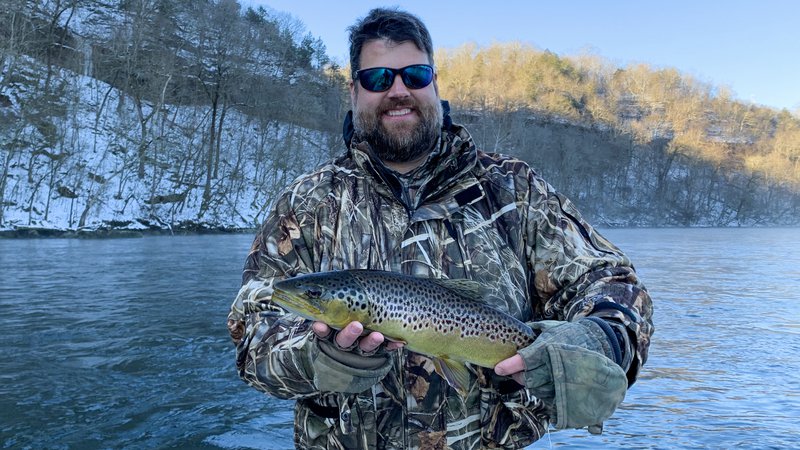
Aug. 3, 2022
Jim Harris
Managing Editor Arkansas Wildlife Magazine
LITTLE ROCK – Ben Batten belies the upper Midwest background that directed him on the path of outdoors and conservation work some 18 years ago. Rather, even with less of a Southern twang than most of his fellow Arkansas Game and Fish Commission employees possess, one still might mistake him for a native Arkansan in the way he seems to know every nook and cranny of this state, every fish in its waters, or the best spots to find deer, ducks and other “critters,” as he calls them.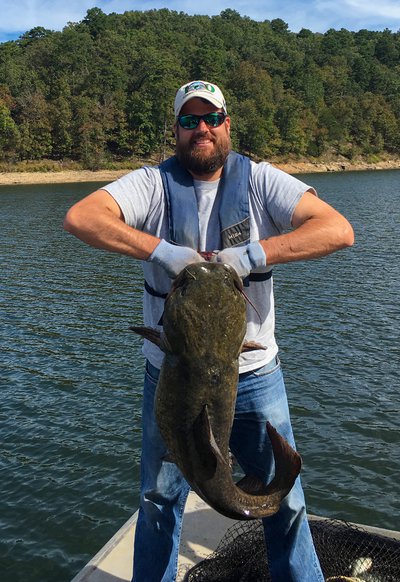
In a way, Batten, the new deputy director for the AGFC, part of Director Austin Booth’s newly revised leadership team, did in fact discover just about every corner of Arkansas during his first three years here, working on a master’s degree under Dr. Mike Eggleton at the University of Arkansas at Pine Bluff starting in 2004.
Batten, a 40-year-old native of Illinois – born in the Mississippi River town of Quincy before spending his formative years in the Springfield suburb of Rochester – was fresh out of the University of Illinois with a bachelor’s degree in natural resource and environmental science, after reconsidering his original plan of being a veterinarian. Locked in to seeking a fisheries career, and buoyed by the experience of identifying every freshwater fish native to Illinois in a job with the Illinois Natural History Survey while in college, graduate school became his target.
“A lot of these fields are a small world,” he notes. A fellow he was working with knew Eggleton in Pine Bluff was looking for his first student in a project to study largemouth bass in the Arkansas River.
“And the cool thing was, it was looking at bass on the Arkansas River across the whole state, from the Oklahoma line to where it runs into the White River about to hit the Mississippi (River), 308 miles,” Batten recalls, smiling at the memory. “So, as a grad student, I got to sample fish in a shocking boat over the whole river four times up and back for two years.
“What a great way to see a new state and see it from end to end.”
While researching for his master’s, he delved into deer hunting, which he was familiar with in Illinois hunting with his dad as a youngster. Arkansas duck hunting struck his fancy, especially learning that “wow, you can talk while you do this,” he said, laughing. “You go out in the morning, you’re done by 9 o’clock, have breakfast, this is great! I really got into that, and of course, the fishing as well, the Arkansas River and a lot of the lakes. I just could not believe what a huge variety of waterbodies were available in Arkansas. Lakes, rivers, streams, oxbows…”
His voice trails off in wonderment about The Natural State that’s been his home going on 18 years. Ironically, his research work – one person in one boat surveying so much of the state – proved beneficial to the AGFC before he ever took a job at the agency. The information he obtained, along with others’ research, led the AGFC to change the legal bass length limit from 15 to 14 inches.
And, back to that part about duck hunting and hunters actually being able to converse in the duck blind: Anyone who knows Batten knows he’s loquacious; he’ll talk up everybody about how their weekend went, their recent fishing trip, what their plans are for the upcoming deer season.
“I’ve always been a people person, and I’ve learned as much about this job talking to folks at boat ramps or out in boats or on creel surveys or wherever,” Batten said. “And you know how it is, you meet someone at a social gathering, and they ask what you do and you say, ‘I work at Game and Fish’ and that often leads to interesting conversations. I love to understand what public perception is about Game and Fish and find out what we are doing right, what we are communicating well and what do we need to improve on or emphasize more, what don’t folks know.”
Batten also says he’s relied on experts in fishing (guides and eager anglers in search of trout, walleye, bass and crappie, for instance) and hunting and seeing the pursuit “through their eyes. That’s what I love. I like getting the opportunity to go out in the field with folks that are really interested and focused on a particular waterbody or species and are really dialed in. Learning from them and seeing the resource from their perspective is great.”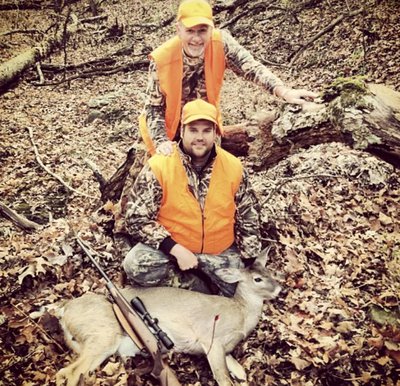
Batten credits Chris Racey, formerly AGFC’s chief of fisheries and now Director Booth’s chief of staff, for mentoring him along the way at the AGFC.
“I actually met Chris the second day I was in Arkansas,” Batten said. “He was a research assistant at UAPB and we worked together for the first year of that Arkansas River project.”
While Racey went on to the AGFC after UAPB, Batten joined the agency after a short stint at what was then the Arkansas Department of Environmental Quality. Batten signed on in 2009 as an assistant in the Family and Community Fishing Program, then ran that effort before joining Racey’s leadership team in fisheries as an assistant chief. He says Racey put him in charge of R3, the agency’s recruiting and retention efforts. When Racey moved into a deputy director’s spot under former Director Pat Fitts four years ago, Batten was elevated to chief of fisheries.
Batten’s top focus while running the Fisheries Division was on communication with the public. “I have seen that when people don’t know what you are doing, they often assume you aren’t doing anything. I wanted to be sure that we increased and improved our outward communications. There is so much incredible work done by employees of the Arkansas Game and Fish Commission, and I wanted to continue to evolve how we got the word out there”. One of the top focuses of this effort was building on the black bass management work, hiring a new coordinator and developing a program plan “Now that’s really going to be revolutionary,” he said.
Conservation also was among his primary focuses, particularly trying to help improve the habitat for threatened and endangered species while containing the troubling nuisance ones like invasive carp and nonnative vegetation in lakes and streams. “Unfortunately it doesn’t get the limelight it should,” he said. “You hear plenty about hook and bullet, hunting and fishing, which is incredibly important, but part of our charge is take care of ALL the critters, right? We have a lot of fish, mussels and amphibians that are threatened, and I tried to put more effort toward these resources while I was there: We brought aboard the agency’s first-ever dedicated crayfish biologist. In the new five-year strategic plan we put forth (in June 2021), we dedicated more personnel and funding toward the conservation side.
“The other thing that ended up being a lot of challenge, but I feel like we made some significant headway, is the aquatic nuisance species end. We’ve increased our capacity significantly in the last several years, going from one full-time person to two full-time and five part-time workers, with six of those dedicated to invasive carp.”
But, he insists, he could never have done it alone. “I’ll be the first to say, I don’t do anything by myself. Truly, I coordinate and try to enable folks to do things,” he said. “No credit, but being there helping and getting the right people in the right place. I’ve always been a part of great teams. Chris has helped me out so much along the way. On that fisheries leadership team, I just learned a lot and had a lot of good people pulling on the rope together.”
Improved fish habitat work was another major effort during Batten’s time as chief, as well as hiring the agency’s first social scientist for fisheries. “We just emphasized a lot of survey work with anglers, not that it hadn’t been recognized as important, but we needed to survey more and interact with our anglers, because we serve them. That’s something that’s always been important to me,” he said.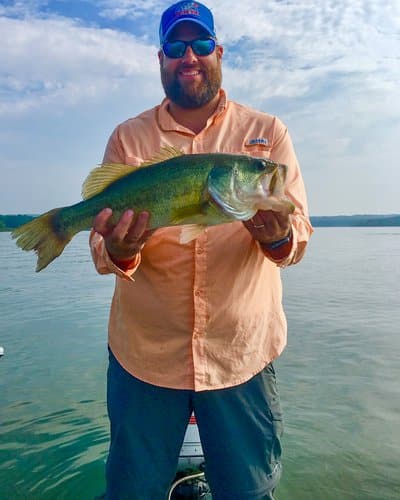
Then in June, Director Booth tapped Batten to join his leadership team on the agency’s second floor. He says that 10 to 12 years ago, he wouldn’t have envisioned being more than perhaps a ground-level program leader. It wasn’t his aspiration then, he said. He had felt more of a reluctance to take on “leader” jobs as his career began.
“But,” he said, “each move has kind of made sense at the time, just depending on who was around and what needed to be done. I felt like now I was prepared. I’ve been very fortunate, Chris Racey’s been just a fantastic mentor … he’s done a great job preparing me for each role. You talk about mentorship, you want to prepare somebody to take over when you move on and he’s done that great. That’s really helped me.”
Batten believes he’s amassed the right experience to serve him well in a new role. “Now, this one is a little different than everything else. Because, historically, up to this point it’s been fish, fish, fish, right? And I got a master’s degree in fish management, so that’s logical. Now I get to help oversee the leadership of the fiscal division and the operations division, we have a $117 million spending plan for our current fiscal year, and oversight for every single office, access area and construction project and everything. I’ve got a lot to soak in for this new role, but I’m ready for the challenge, enjoying the opportunity and working with a good team.”
You can take Batten out of Illinois, but it’s going to be tough to pry him out of Arkansas. His wife, Marcella, a native of Rome, Italy, is returning this fall to teaching at Mount St. Mary Academy, where she previously spent 10 years teaching biology. She speaks five languages; she’ll be teaching French to the students this time.
“She has been an incredible supporter of my career, and I could not have accomplished anything without her,” Batten said.
Batten says his wife, who he met while both were in graduate school at UAPB, is a fan of wild game, while maybe not as much for freshwater fish as the Mediterranean seafood dishes she grew up with. But he’s bringing her around.
“I love fishing for almost everything we have in Arkansas, and that’s a huge variety. But, there are two types of fishing I love most in Arkansas,” he said. “The first is definitely bass fishing. Unfortunately, because of time and the pandemic I haven’t tournament fished the last couple of years, but have enjoyed doing that for fun. I like the excitement of bass fishing, the pressure. I’m no good at it. If I’m in a tournament I’m just donating money to the winner.
“My second favorite is crappie. I love to eat fish. Crappie are fun, they can be tough some days and then other days you figure them out and catch the heck out of them. That makes it really exciting. They’re also delicious and I really enjoy cooking and entertaining – go out and catch a bunch of fish, have a fish fry.”
Batten wasn’t completely without an Arkansas connection or two when he first set out for Pine Bluff and a master’s degree in 2004. First, his family spent a part of the summer of his 16th year fishing Norfork Lake, which included a memorable outing night-fishing for bass using a blacklight. Also, his paternal grandparents were originally from Jonesboro and Paragould before moving to St. Louis for opportunity. “It’s not in my family anymore, but there is still an establishment in Paragould called Batten’s Donuts (and Bakery) that’s been around for decades and decades. It’s named after my father’s uncle. So I do have Arkansas ties.”
Recent News
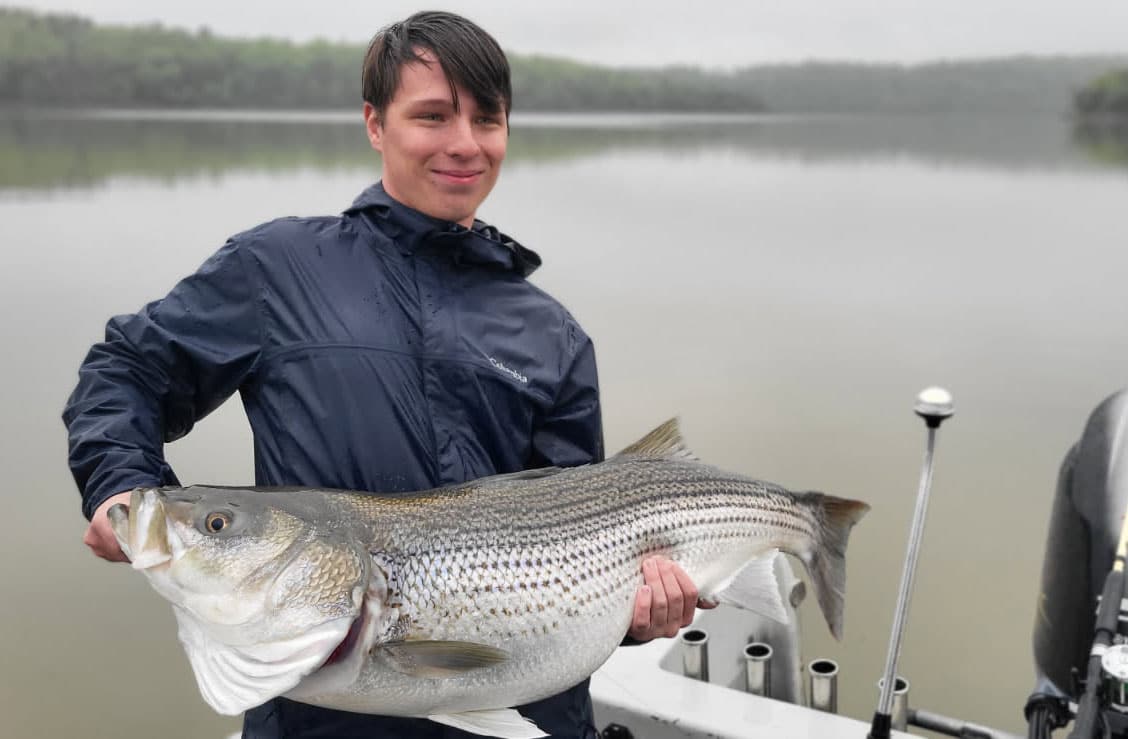
Arkansas Wildlife Weekly Fishing Report
Apr. 24, 2025
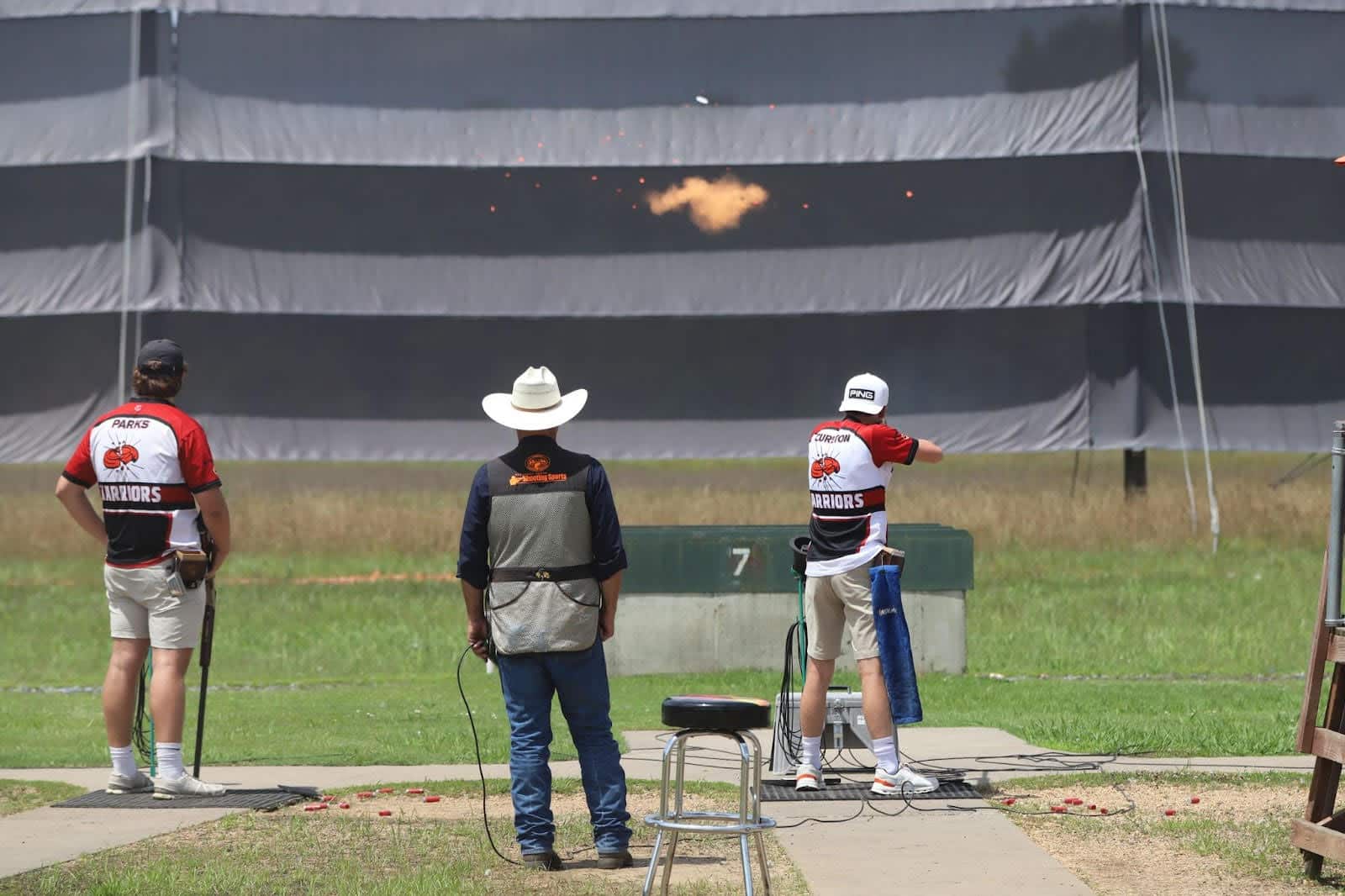
Contenders take aim as shooting sports regionals begin
Apr. 23, 2025
Subscribe to Our Weekly Newsletter E-mails
Don’t miss another issue. Sign up now to receive the AGFC Wildlife Weekly Newsletter in your mailbox every Wednesday afternoon (Waterfowl Reports are published weekly during waterfowl season and periodically outside the season). Fishing Reports arrive on Thursdays. Fill in the following fields and hit submit. Thanks, and welcome!
